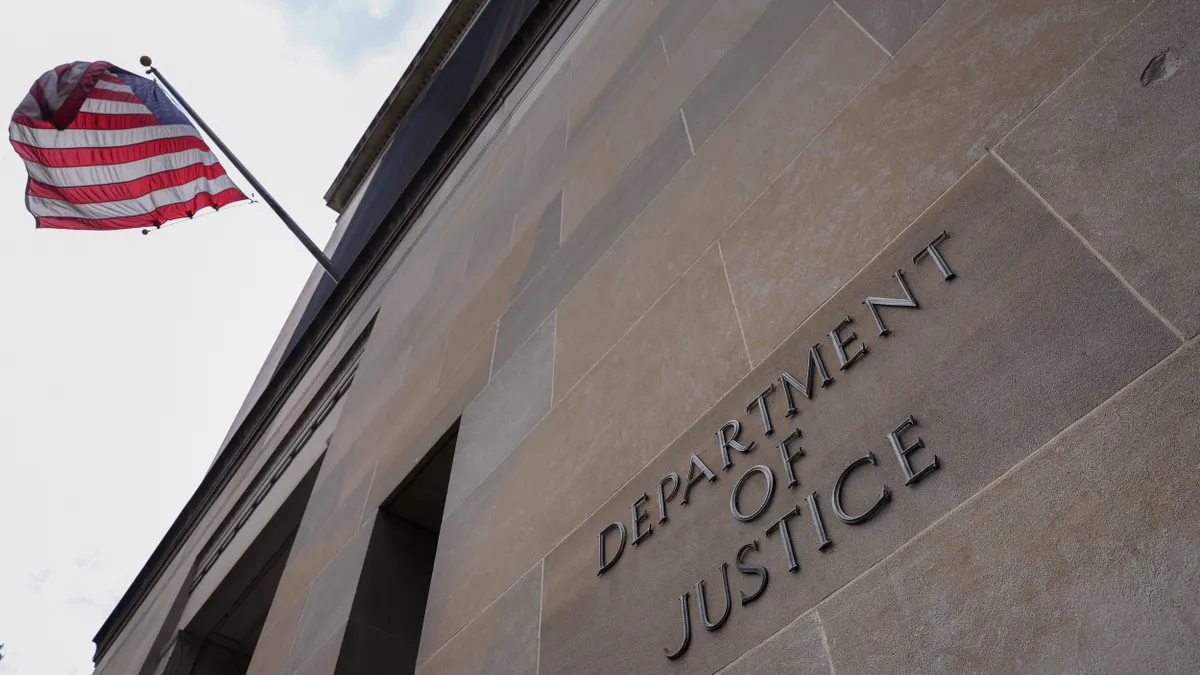Five Republican members of the Jacksonville, Florida, City Council launched an audit March 17 to increase the efficiency of the city government, naming the campaign after the Trump administration’s Department of Government Efficiency.
Billionaire mogul Elon Musk is spearheading President Donald Trump’s DOGE effort to systematically reshape the federal government by finding efficiencies and eliminating what it and others in the Trump administration call waste, fraud and abuse in federal spending. DOGE efforts to date — some of which have been challenged in lawsuits and halted or reversed in judicial decisions — include slashing spending, rescinding grants and shutting down programs, agencies and entire cabinet departments.
Duval DOGE — named after Jacksonville’s Duval County — does not have the power to cut spending itself. It will make recommendations to the City Council’s Finance Committee. According to the Duval DOGE website the week of April 24, the special committee has identified more than $15 million in potential cost savings toward its goal of cutting $50 million from the city budget.
Members of the public and some City Council members argue the effort is politically motivated and duplicates ongoing work by Jacksonville Mayor Donna Deegan, a Democrat.
The city needs the special committee because it is facing “significant” financial challenges, said City Council Member Ron Salem, chair of Duval DOGE, during a March 11 council meeting. The special committee’s final report is due June 23.
The financial challenges require “that we take a hard look at how we operate to ensure that we are maximizing efficiency without compromising essential services,” Salem said.
At the state level, Florida is among at least 26 states that have launched their own versions of DOGE since Trump took office in January. Florida’s DOGE task force aims to “eliminate waste within the state government, save taxpayers money and ensure accountability in Florida,” Gov. Ron DeSantis announced in a Feb. 24 press release.
Any time waste can be rooted out from government and the private sector, “that’s a good thing,” said Thomas Kahn, an American University professor with expertise in federal government budgets. “But it needs to be done in a careful way and a thoughtful way, and not with a chainsaw, like the way Mr. Musk is doing it,” Kahn said.
Findings to date
By April 1, Duval DOGE had assessed whether capital projects marked as completed on the city’s transparency website could be closed. On April 18, it said it had found roughly $17 million in unspent funds from completed capital projects, according to News4Jax. The mayor’s office pushed back, however, saying that money had already been realized, the news outlet reported.
The special committee also identified 66 projects totalling more than $90 million that hadn’t reported any expenditures since Oct. 1, 2023, and it requested information regarding the lack of activity. Those projects include plaza upgrades, drainage studies, sidewalk improvements and contaminated soil remediation all across the city.
The special committee is now reviewing the growth of departmental budgets between fiscal year 2017- 2018 and fiscal year 2024 - 2025. It’s also probing purchasing cards issued to city employees, use of city facilities such as parks, library programming and how agencies are providing children’s services as potential spots for cost savings and efficiencies.
Residents question motivation
Some Jacksonville residents are questioning the political motivation behind Duval DOGE.
During an April 15 special committee meeting, one resident argued the committee was simply duplicating Deegan’s existing campaign to cut waste from the city government.
Last year, the city partnered with operational management nonprofit Lean Competency System to help provide “smart governance, greater efficiency and responsible financial stewardship,” the city stated in a March 11 update. According to the city, the effort has led to streamlined permitting processes, digitized contract approvals and automated expense reports, and it has saved the city over 216,000 hours of employees’ time.
City Council member Jimmy Peluso noted during a March 18 city council meeting that Democratic members of the City Council were excluded from the special committee.
American University’s Kahn said decisions to spend and save money are more effective when they’re made on a bipartisan basis. Neither Democrats nor Republicans support waste, he said. “It’s unfortunate if they’re doing it just on a party line,” he said.




















